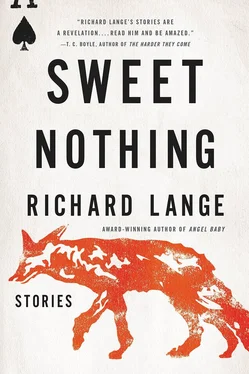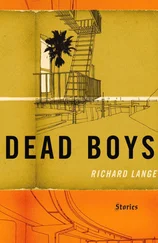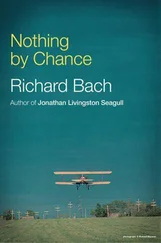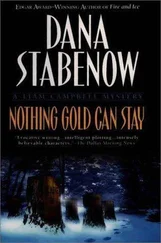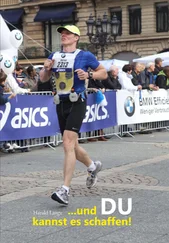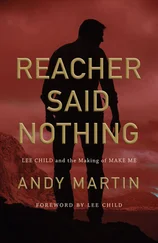“Why did I pay so much money for it if you’re not going to wear it?”
“Not out here,” Miguel says.
Papá hisses angrily and walks back to open the toolbox in the bed of the truck. He pulls out a couple of plastic bottles of Coke, drops them into the bag with the burritos, and sets off in the direction of Campo, expecting Miguel to follow. Miguel wonders what would happen if he didn’t, but then jogs to catch up.
“Do you even know where we’re going?” he asks.
“A road up here leads to the border,” Papá says. “We’ll start there.”
A hundred yards farther an overgrown jeep trail shoots off to the south, not much more than tire tracks worn into the hardpan. Miguel and the old man follow it over a series of low, scrub-covered hills and down into a sandy wash that then becomes their path for a time. When they finally clamber out of the gulley and onto a rocky knob with a view of the surrounding terrain, Miguel pulls up short, shocked by what he sees.
The fire-ravaged wasteland in front of him extends all the way to the horizon, a nightmare landscape of blackened chaparral and still smoldering oaks. Ash swirls in the hot wind, whipping around the charred skeletons of manzanita and sage bushes and newly exposed boulders that thrust up from the scorched plain like broken teeth.
Miguel watches a trio of buzzards circle in the hazy sky above the burn zone, then drop suddenly and disappear. Going after a dead rabbit. A dead deer. Worse. Papá’s crazy. They’ll never find Alberto and Maria alive. If the two of them were out here when the fire passed through, they’re nothing but smoke now.
“Papá,” Miguel begins, ready to say what he’s thinking, but the old man cuts him off with a wave of his hand.
“We’re going on,” he says.
Miguel can’t believe how stupid this is, but it’s no use trying to reason with him. The guy can barely read, and his writing looks like a little kid’s. He still believes in ghosts and good-luck charms and still gets on his knees every night to pray. Puro Durango, man, puro naco . He passes Miguel a Coke and tells him to drink. Miguel drains the bottle and tosses it out into the devastation. Tucson, he thinks. Eyes on the prize .
The old man pulls up the neck of his T-shirt to cover his nose and mouth, and they set off across the burned desert. Miguel’s shuffling feet raise a plume of dust that drags behind them like a tail, and he hopes the border patrol notices it and forces them to turn around. If they’re still following a trail, Miguel can’t see it, so he watches the old man’s back, goes where he goes.
Fifteen minutes later they reach the border fence, a ten-foot-high barrier constructed of panels of corrugated steel, Mexico on the far side, the U.S. over here. They stand on the wide dirt road that fronts the fence, and Papá points out where someone has burrowed beneath the panels to create a series of tight passages between the two countries, shallow depressions worn smooth by all the bodies that have squeezed through them.
“Those are El Chango’s,” he says.
“Is that how you came across?” Miguel asks.
“Sometimes.”
Miguel would ask what he means by this but knows he won’t get an answer. Papá never talks about his past beyond the few stories he tells of growing up poor, stories that are supposed to make Miguel and his siblings feel lucky for all the things they have. Miguel knows the old man moved to L.A. when he was twenty, met Mamá the next year, and had him a year later. There are photos of all that in Mamá’s albums. And he knows the old man lived in TJ for a while before that.
“What did you do there?” Miguel once asked him.
“What everyone did,” Papá replied, and that was all Miguel could pry out of him.
The wind picks up and whistles through the gaps in the fence. The old man points to a burned hill on the U.S. side and says, “That way.”
Miguel spits, hikes up his baggy jeans, and again follows his father into the desert. If he’d known they were going to be hiking around out here all goddamn day, he’d have worn a belt.
SEVENTY YEARS OLD. Someone, some kid, taunts Brewer with this in a dream: “You’re seventy, man.” Brewer denies it, but it’s true. Born July 5, 1944, in Licking Springs, Missouri. Henry Brewer Jr., only son of Henry and Jan Brewer. Born at home because they couldn’t afford a hospital, and no money is also why they left Missouri soon afterward, staggering west.
Dad loved movies — could quote the stars and sing the songs, could laugh or cry on cue — so Hollywood was the goal. It took ten years to get there, with stops in Tulsa and Houston, Denver and Phoenix, that place in New Mexico with the wasps’ nest, a dusty motel in Vegas. Dad sold cars to pay the bills, sold houses, sold hamburgers. The man could sell anything. He had the right smile, the right spirit. And Mom was his little helper, always there with an encouraging word and a hug, always ready to unpack when they hit town and load up again when it was time to move on.
Brewer? Well, he figured out early on that he was just along for the ride, one more item to be checked off the list before they drove away: keys returned, car gassed up, boy in backseat. If he ever resented this, he can’t remember. These days, the past seems like a fuse that was lit the moment he was born, one that now burns faster than he can run.
What he does know is that Hollywood didn’t work out and Dad never got any closer to the movies than buying a ticket every Saturday. But that was fine because Mom kept right on ironing his shirts and laughing at his jokes and rubbing his head when it hurt, saying, “Do that thing from Gunga Din again.” They were more in love than any couple Brewer has ever known, and they barely noticed when he joined the navy at eighteen and moved away for good.
Out of spite he went the other way across the country: Phoenix and Dallas, Gulfport and Miami. He didn’t have Dad’s charm, so he had to get his hands dirty. He put in twelve-hour days in factories and on oil rigs, pounded nails and welded steel. And he didn’t have Mom to come home to either. There were women, sure, and men, but nothing that lasted. As soon as anyone opened up, he panicked. Their secrets and sadnesses were like a layer of grease on his skin, rank and suffocating. He always felt best driving away from the last place and toward the next one.
He only brushed up against love once: New Orleans, 1969. A bartender named Charlie Wiggins. He’d have come off the road for that boy if such a thing were conceivable back then. They were friends, lovers, one soul in two bodies, flesh the only wall between them. Charlie liked Shakespeare too. They’d get drunk and read the plays together, the big death scenes — Romeo and Mercutio, Othello and Desdemona — and both end up weeping. An idyll like that can’t last, however. There’s a law somewhere. An icy road, a sudden curve, a tree — that’s how Charlie went.
And then time flew. The men around Brewer married and had kids and grandkids. They Christmas-shopped and mowed lawns and cried at their daughters’ weddings. Brewer opens his eyes and stares at the wall of the trailer. Seventy years old. He was vain when he was younger, too proud of his strong arms, his handsome face, his thick cock. But all that’s gone now. Damn the quivering jowls and sagging belly, damn the muscles that ache for no reason. He was also proud of his solitude, how even in a crowded room he was still somehow so beautifully alone. And now? Well, he’s still alone, but now he’s lonely too, lonely like never before. So also damn the heart that can’t forget.
Oh hell, he scolds himself. Get up, old woman. You fought for this life this morning, now get up and finish living it.
Читать дальше
